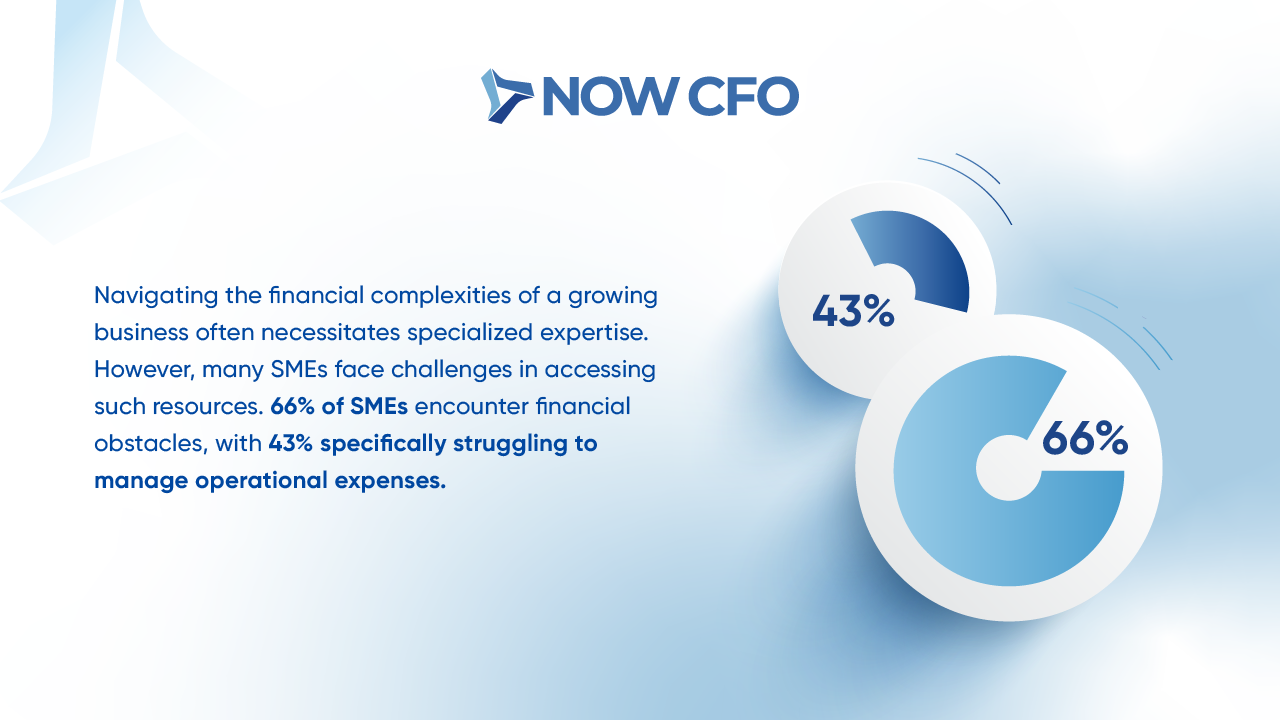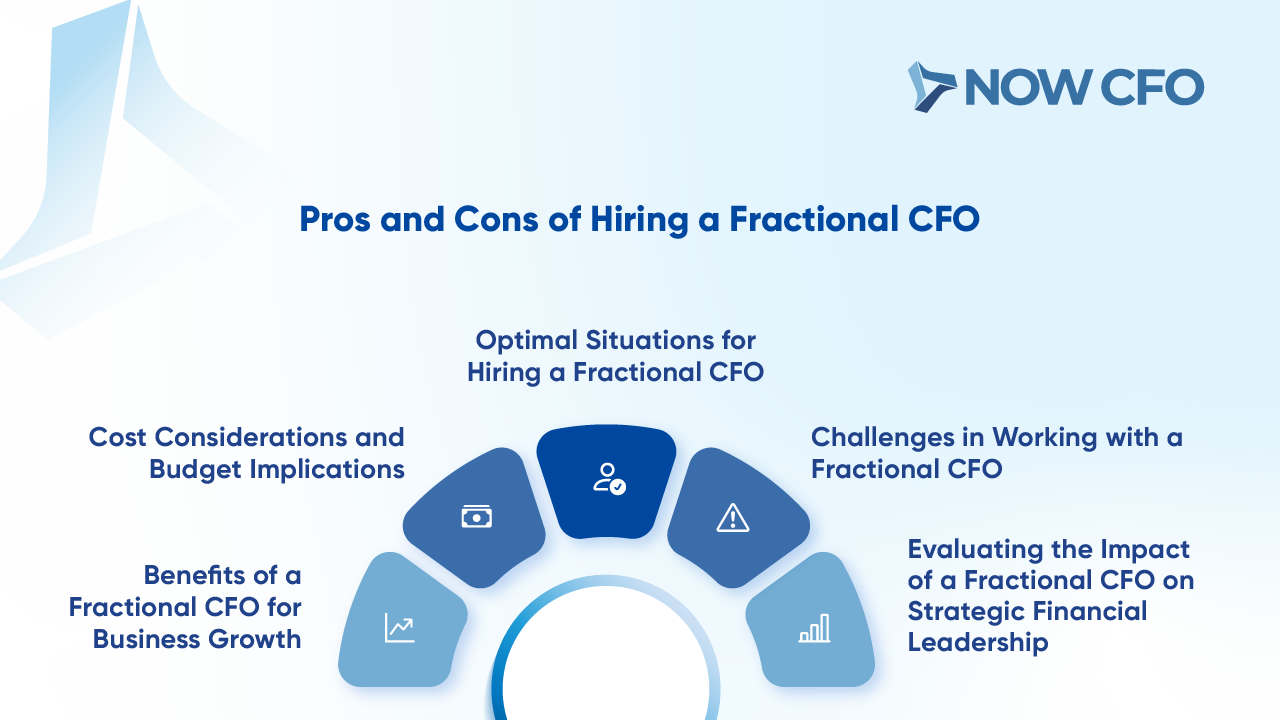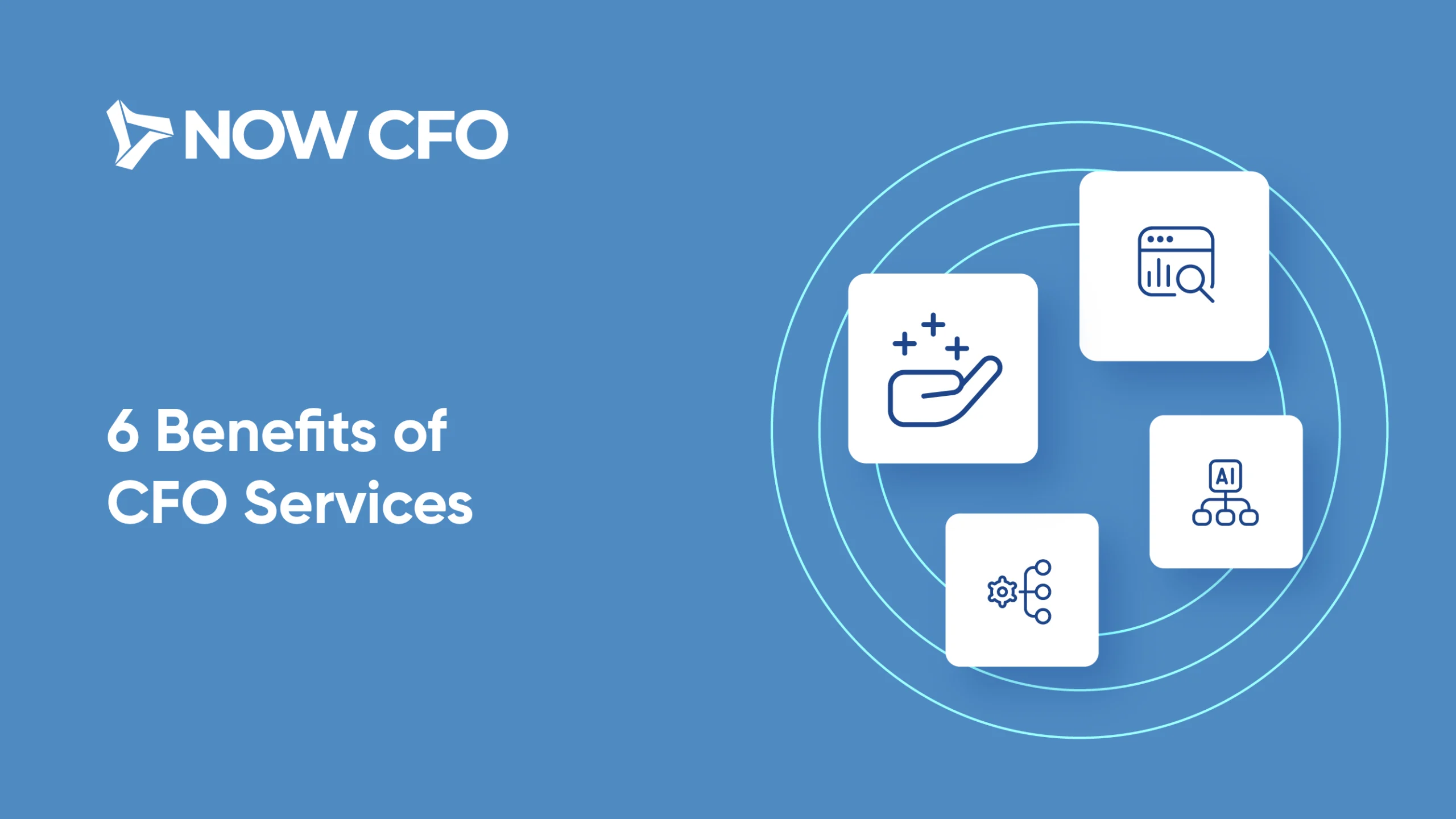
Navigating the financial complexities of a growing business often necessitates specialized expertise. However, many SMEs face challenges in accessing such resources. Notably, 66% of SMEs encounter financial obstacles, with 43% struggling to manage operational expenses.

Business owners must decide whether they need a high-level strategist to guide long-term financial planning or a controller to manage the integrity of day-to-day accounting operations. Each role offers unique value, and understanding their differences can be the key to sustainable growth and operational stability.
Understanding the Roles: Fractional CFO vs Fractional Controller
Fractional financial professionals are invaluable assets for organizations seeking expertise without the commitment of full-time hires. Two pivotal roles, fractional CFO and the fractional controller. Understanding their distinct functions is crucial for businesses aiming to optimize financial management.
What is a Fractional CFO?
A fractional CFO is a seasoned financial executive who offers strategic financial leadership on a part-time or project basis. This arrangement allows companies to access high-level financial guidance without the expense of a full-time CFO.
Fractional CFOs typically hold advanced certifications such as CPA or CMA and possess extensive experience in financial strategy and management.
What is a Fractional Controller?
Conversely, a fractional controller focuses on the meticulous oversight of accounting operations, ensuring accuracy and compliance in financial reporting. They manage daily accounting tasks, maintain internal controls, and ensure adherence to regulatory standards.
This role is essential for the integrity of financial data and supports informed decision-making.
Key Responsibilities: Fractional CFO vs Fractional Controller
Now, lets look into the key responsibilities of a fractional CFO and a fractional controller.
Key Responsibilities of a Fractional CFO
- Strategic Financial Planning: Developing long-term financial strategies aligned with the company’s goals.
- Financial Forecasting and Modeling: Creating financial models to guide decision-making and anticipate future financial scenarios.
- Cash Flow Management: Ensuring sufficient liquidity for operations and growth initiatives.
- Growth Strategy: Advising on mergers, acquisitions, and market expansion opportunities.
- Risk Management: Identifying and mitigating financial risks to safeguard the company’s assets.
Key Responsibilities of a Fractional Controller
- Financial Reporting: Preparing accurate financial statements and reports.
- Compliance: Ensuring adherence to accounting standards and regulatory requirements.
- Budget Management: Overseeing budgeting processes and monitoring expenditures.
- Internal Controls: Implementing procedures to maintain financial data integrity.
- Audit Coordination: Facilitating internal and external audits to ensure compliance and accuracy.
Overlapping Functions Between CFOs and Controllers
While distinct, the roles of CFOs and controllers often intersect, particularly in financial reporting and compliance. Both are integral to maintaining financial health, with Controllers focusing on accuracy and CFOs on strategic application. Collaboration between the two ensures comprehensive financial oversight.
Key Differences Between a Fractional CFO and a Fractional Controller
Understanding the distinct roles and responsibilities of fractional vs fractional controller is essential for businesses aiming to optimize their financial strategies. While both positions contribute significantly to an organization’s financial health, their focuses and functions differ.
Strategic vs. Tactical Focus in Financial Management
A primary distinction in fractional CFO vs fractional controller lies in their strategic versus tactical orientations. A fractional CFO primarily engages in high-level strategic planning like analyzing market trends, evaluating investment opportunities, and formulating strategies.
In contrast, a fractional controller concentrates on tactical aspects, managing daily accounting operations, ensuring accurate financial records, and implementing internal controls to maintain compliance and efficiency.
Role in Financial Reporting and Compliance
Both roles are integral to financial reporting and compliance, yet their contributions differ. A fractional controller is responsible for preparing accurate financial statements, overseeing ledger maintenance, and ensuring adherence to accounting standards and regulatory requirements.
On the other hand, a fractional CFO utilizes these reports to provide strategic insights, assess financial risks, and communicate the company’s financial health to stakeholders, thus influencing decision-making at the highest levels.
Decision-Making and Long-Term Planning Capabilities
Decision-making scopes vary significantly between the two roles. A fractional CFO engages in long-term planning and making decisions on investments, capital structure, and strategic initiatives that shape the company’s future. They assess financial risks and opportunities, guiding the organization toward its long-term objectives.
In contrast, a fractional controller focuses on short-term decision-making, such as managing cash flow, budgeting, and ensuring that financial operations run smoothly daily.
Budgeting, Forecasting, and Cash Flow Management
In the areas of budgeting, forecasting, and cash flow management, both roles play pivotal yet distinct parts. A fractional CFO develops comprehensive financial forecasts and budgets that align with the company’s strategic goals, analyzing market conditions and business trends to predict future financial performance.
Conversely, a fractional controller implements these budgets, monitors actual performance against forecasts, and manages daily cash flow to ensure operational liquidity.
Interaction with Stakeholders and Leadership Teams
The extent of interaction with stakeholders and leadership teams also differentiates these roles. A fractional CFO frequently collaborates with the CEO, board members, and external investors, providing strategic financial insights and participating in high-level decision-making.
A fractional controller works closely with internal departments, such as accounting and operations, ensuring that financial processes are efficient and compliant, thus supporting the information needs of the leadership team.
Pros and Cons of Hiring a Fractional CFO
Engaging a fractional CFO can offer businesses strategic and flexible financial leadership without the commitment of a full-time executive. However, it’s essential to weigh the advantages and potential drawbacks to determine if this approach aligns with your organization’s needs.
Benefits of a Fractional CFO for Business Growth
CFO as a service brings a wealth of experience and strategic insight, which can be pivotal for business expansion. Key advantages include:
- Enhanced Decision-Making: With accurate financial data and analysis, businesses can make informed decisions, reducing the risk of costly mistakes.
- Improved Cash Flow Management: By closely monitoring cash flow, a fractional CFO can identify potential shortages or surpluses and develop strategies to address them, ensuring operational stability.
- Strategic Planning: They assist in formulating long-term financial strategies, aligning financial goals with business objectives to drive growth.
- Investor Confidence: Their expertise can enhance credibility with investors, facilitating funding opportunities and fostering business growth.
Learn More: How a Fractional CFO Can Be Benefit to Your Business
Cost Considerations and Budget Implications
Virtual CFO services offers a cost-effective alternative to a full-time executive. Financial implications include:
- Reduced Overhead: Businesses access top-tier financial expertise without incurring full-time salary and benefits, optimizing resource allocation.
- Flexible Engagements: Companies can adjust the level of CFO involvement based on current needs, ensuring financial leadership aligns with budget constraints.
Learn More: Fractional CFO Services vs Traditional CFO Hiring Cost
Optimal Situations for Hiring a Fractional CFO
Certain scenarios make the engagement of a fractional CFO particularly beneficial:
- Financial Challenges: When facing complex financial issues beyond the existing team’s expertise, a fractional CFO can provide the necessary guidance.
- Growth Phases: During periods of rapid expansion, their strategic oversight ensures sustainable development and financial stability.
- Resource Limitations: Small to medium-sized businesses that require high-level financial advice but lack the budget for a full-time CFO find this model advantageous.
Learn More: Benefits of hiring a fractional CFO
Challenges in Working with a Fractional CFO
Despite the benefits, there are potential fractional controller limitations to consider:
- Limited Integration: Due to part-time involvement, a fractional CFO may not fully immerse themselves in the company’s culture and operations, potentially leading to misaligned strategies.
- Communication Gaps: Effective communication is crucial; without it, misunderstandings can arise, hindering financial initiatives.
- Availability Constraints: Balancing multiple clients might limit their responsiveness to urgent matters within your organization.
Evaluating the Impact of a Fractional CFO on Strategic Financial Leadership
Assessing the effectiveness of a fractional CFO involves examining their contributions to:
- Financial Planning: Their ability to develop and implement strategies that align with business goals.
- Risk Management: How they identify and mitigate financial risks impacting the company’s stability.
- Performance Metrics: The improvement in key financial indicators, such as profitability and cash flow, under their guidance.
Pros and Cons of Hiring a Fractional Controller
Engaging a fractional controller can significantly impact a company’s financial operations. Understanding the advantages and potential drawbacks is essential for making an informed decision.

How a Fractional Controller Enhances Day-to-Day Accounting
A fractional controller plays a pivotal role in refining daily accounting functions. They ensure accurate financial reporting, maintain compliance with regulations, and implement efficient processes.
By leveraging technology and automation, they expedite routine tasks, providing faster access to essential financial data. This enhancement allows businesses to focus on strategic initiatives, knowing that their financial foundation is solid.
Efficiency Benefits and Cost Savings
Hiring a fractional controller offers notable efficiency gains and cost reductions. Companies can access high-level expertise without the financial commitment of a full-time position, leading to significant savings.
This approach is especially beneficial for smaller businesses or those experiencing rapid growth, as it provides flexibility and scalability. Additionally, fractional controllers often bring diverse industry experience, introducing best practices that streamline operations and reduce inefficiencies.
When to hire a Fractional Controller?
Determining the appropriate time to engage a fractional controller depends on several factors:
- Rapid Growth: Businesses experiencing swift expansion may need enhanced financial oversight to manage increased complexity.
- Budget Constraints: Organizations that require financial expertise but cannot justify a full-time hire find fractional controllers to be a cost-effective solution.
- Process Improvement Needs: Companies aiming to optimize financial processes and implement robust internal controls can benefit from the specialized skills of a fractional controller.
Limitations of a Fractional Controller
Despite the advantages, there are inherent limitations to consider:
- Limited Availability: Fractional controllers often juggle multiple clients, which may affect their responsiveness to urgent matters.
- Integration Challenges: As external consultants, they might lack deep familiarity with company-specific nuances, potentially leading to less tailored solutions.
- Remote Collaboration: Many fractional controllers operate remotely, necessitating adjustments in communication and collaboration practices within the organization.
Evaluating the Operational Impact of a Fractional Controller
The influence of a fractional controller on operations can be substantial. They identify areas where processes can be streamlined, implement automation to reduce manual errors, and establish key performance indicators to monitor financial health.
By providing detailed financial analysis, they enable informed decision-making, contributing to the organization’s overall efficiency and profitability.
How to Decide Between a Fractional CFO and a Fractional Controller
Choosing between fractional CFO vs fractional controller is crucial for aligning financial leadership with your business’s specific needs. This decision hinges on several factors, including your company’s financial requirements, industry nuances, budget constraints, and strategic objectives.
Assessing Your Business’s Financial Needs
Evaluating your organization’s financial landscape is the first step in this decision-making process. If your business requires high-level strategic planning, such as fundraising, mergers, or market expansion, an outsourced CFO is likely more suitable. They provide forward-thinking strategies and identify growth opportunities.
Conversely, if the focus is on maintaining accurate financial records, ensuring compliance, and managing daily accounting operations, a fractional controller would be the appropriate choice. They excel in overseeing day-to-day financial management and ensuring data accuracy.
Industry-Specific Considerations: Outsourced CFO vs Controller
The nature of your industry significantly influences this choice. Industries with complex regulatory environments, such as healthcare or finance, may benefit more from a fractional controller to ensure meticulous compliance and accurate reporting.
In contrast, sectors experiencing rapid growth or technological disruption might require an interim CFO to navigate strategic challenges and capitalize on emerging opportunities. For instance, a tech startup seeking venture capital would find a fractional CFO advantages invaluable for investor relations and financial forecasting.
CFO vs Controller Key Differences: Cost Structures and ROI
Financial considerations play a pivotal role in this decision. Engaging a full-time CFO can be costly, with salaries ranging from $250,000 to $500,000 per year. In contrast, a fractional CFO responsibilities offers flexibility and cost-effectiveness, with services typically costing between $3,000 to $10,000 per month, depending on the scope of work and company size.
This approach provides access to high-level expertise without the financial burden of a full-time executive. Similarly, a fractional controller role provides essential financial oversight at a fraction of the cost.
When to Hire Both for Maximum Efficiency
In certain scenarios, both fractional CFO and fractional controller can maximize efficiency. This combination ensures comprehensive financial management, with the Controller focusing on accurate financial reporting and the CFO providing strategic direction.
Businesses undergoing significant transformations, such as mergers or rapid scaling, can benefit from this dual approach to maintaining financial stability while pursuing growth.
Choosing the Right Fractional Finance Professional for Your Business
Selecting the appropriate financial professional requires a clear understanding of your business’s current stage, challenges, and goals. A thorough assessment of your financial operations, growth plans, and industry demands will guide this choice.
Engaging in consultations with potential candidates can provide insights into how their expertise aligns with your needs, ensuring a strategic fit that supports your company’s objectives.
Conclusion: Which One is Right for Your Business?
Choosing between a fractional CFO vs fractional controller shouldn’t feel like a gamble, it should be a strategic move grounded in your business’s goals. Whether you require sharp forecasting and investor-ready insights, or tighter financial controls and accurate reporting, fractional financial leadership offers the flexibility to scale smartly without overspending.
If you’re unsure where your business fits on the financial leadership spectrum, NOW CFO can help. Our team has supported thousands of companies in defining their financial infrastructure and unlocking measurable growth.
Schedule a no-cost financial consultation. Explore our success stories to see how we’ve helped businesses just like yours.










